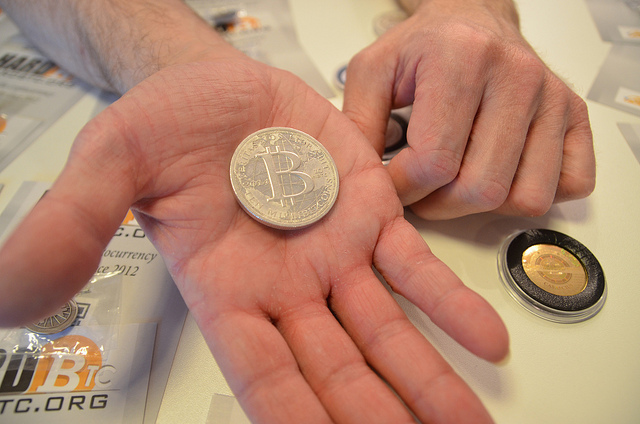The monetary world was taken by surprise some seven years ago when new money came into the market. And we are not talking about money printed by governments, but a new currency, namely, the bitcoin. Independent of any government and with no paper or coin equivalent. As it increased in popularity rather quickly, traders used it extensively, more and more brokers including bitcoin in their trading offer. And now another question arises: what is the bitcoin? Is it a currency or a commodity?
Let’s see. We will look up the currency definition: a form of money, consisting of paper notes and coins, issued by an authority/a government and circulating in an economy. It is an exchange mean used for getting goods or paying for services. And a tradable asset, within the currency markets.
On the other hand, a commodity is a basic good, mostly used as a raw material in production process for other goods. Commodities are also tradable on the specific markets (eg oil, metals, grains etc). Commodities are mostly traded via future contracts specifying minimum quality and quantities but there are also brokers that offer CFD on commodities.
Digital money
Now, how do the markets define bitcoin (BTC): as a digital currency, without a physical equivalent, with balances kept on a public record. Well, this digital part makes it for the controversy around the BTC. As well as its independency from any government or central bank. Therefore, different governments approach BTC in a different way.
Taxed as property
For example, the US authorities don’t necessarily treat BTC as a currency. Ever since 2014, the Internal Revenue Services (IRS) announced they would tax all virtual currencies as property rather than currency. However, payment processors have the obligation to report and register it. Staying on the same continent, we look at Canada. Their government considers BTC a commodity and transactions based on BTC are considered barter transactions. All BTC exchanges are money service businesses and they need to register with the Financial Transactions and Reports Analysis Centre, as a measure against money laundry practices. Australia sees BTC transactions as barter transactions as well.
VAT exempted
Moving to Europe, the European Union doesn’t have a unitary approach to BTC, leaving the matter to the decision of each country within the Union. Cyprus does not regulate BTC trading, Belgium exempted BTC transactions from VAT, while Germany taxes BTC transactions depending of its use: trading, mining, independent users or companies.
Altogether illegal
There are, however, some countries that deemed BTC illegal. In China, the financial institutions, including banks, are not allowed to make transactions with BTC, but individuals can use it. Ecuador banned BTC altogether, as well as Bolivia. This is a live process, however, and changes may occur in the future depending on general sentiment or on how much more popular BTC becomes.
All in all, BTC is anything but ignored both by individuals and by authorities. Weather they treat it as a commodity and tax it as such, or as a currency and include it in the trading activities, BTC seems to be here to stay and to be a good alternative to paper money.
Cover Image via Flickr



